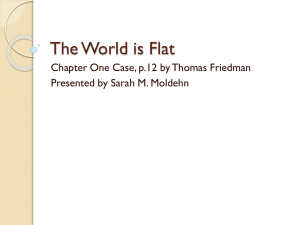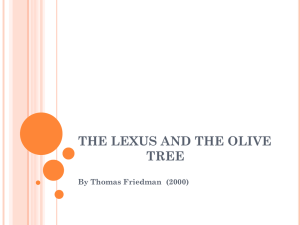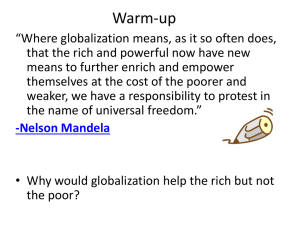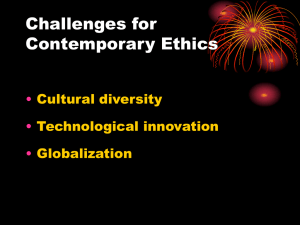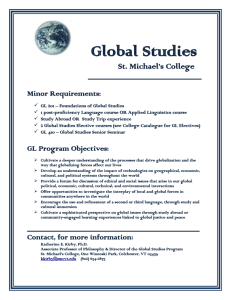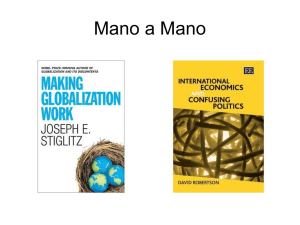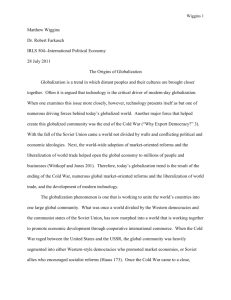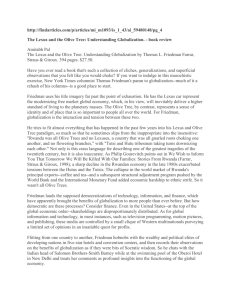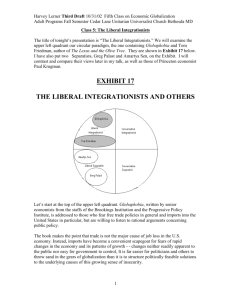Globalization
advertisement
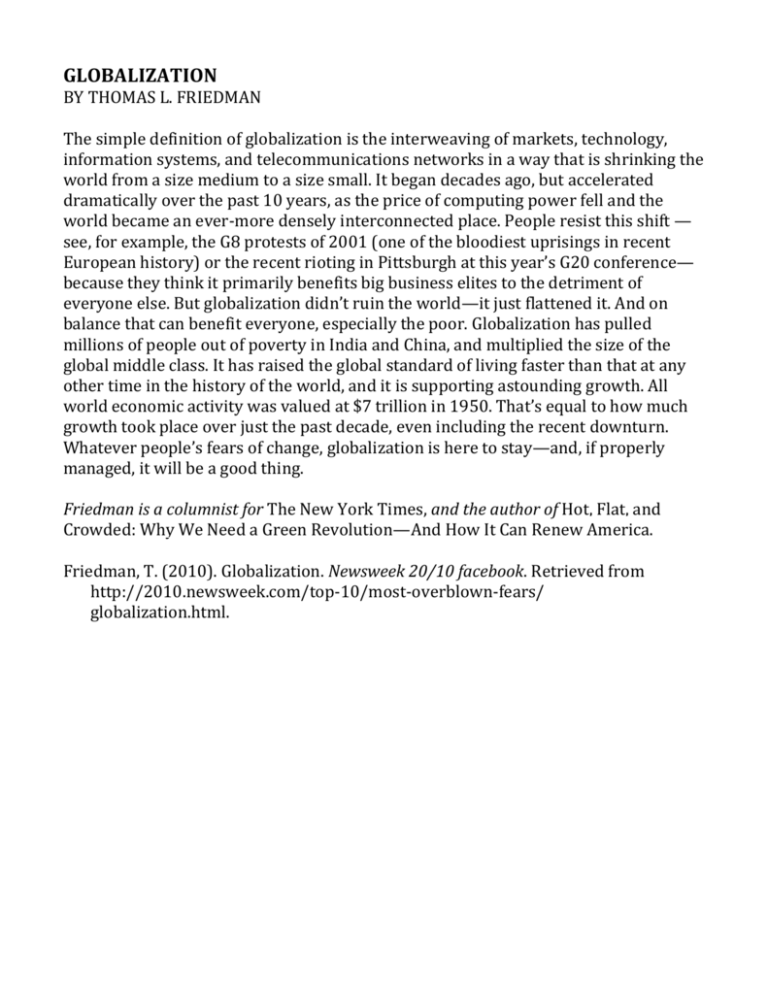
GLOBALIZATION BY THOMAS L. FRIEDMAN The simple definition of globalization is the interweaving of markets, technology, information systems, and telecommunications networks in a way that is shrinking the world from a size medium to a size small. It began decades ago, but accelerated dramatically over the past 10 years, as the price of computing power fell and the world became an ever-more densely interconnected place. People resist this shift — see, for example, the G8 protests of 2001 (one of the bloodiest uprisings in recent European history) or the recent rioting in Pittsburgh at this year’s G20 conference— because they think it primarily benefits big business elites to the detriment of everyone else. But globalization didn’t ruin the world—it just flattened it. And on balance that can benefit everyone, especially the poor. Globalization has pulled millions of people out of poverty in India and China, and multiplied the size of the global middle class. It has raised the global standard of living faster than that at any other time in the history of the world, and it is supporting astounding growth. All world economic activity was valued at $7 trillion in 1950. That’s equal to how much growth took place over just the past decade, even including the recent downturn. Whatever people’s fears of change, globalization is here to stay—and, if properly managed, it will be a good thing. Friedman is a columnist for The New York Times, and the author of Hot, Flat, and Crowded: Why We Need a Green Revolution—And How It Can Renew America. Friedman, T. (2010). Globalization. Newsweek 20/10 facebook. Retrieved from http://2010.newsweek.com/top-10/most-overblown-fears/ globalization.html. APUSH Globalization Assignment 1. Read Globalization article by Thomas Friedman. 2. Define Globalization in your own words: 3. Brainstorm with your parents/grandparents/older adult in your life a list of the most significant changes since 1980 to the way they live their lives. Try to connect each of these changes to globalization. 4. Pick one of the following pieces of technology and then on a separate piece of paper write an argument (justify) as to why it has had a greater effect on daily life than the other choices: a. The cell phone b. Cable/Satellite TV c. The personal computer d. The iPod 5. Explain, on the same piece of paper, why one of the pieces of technology you did not select has not had as great an effect on daily life as your original choice.
